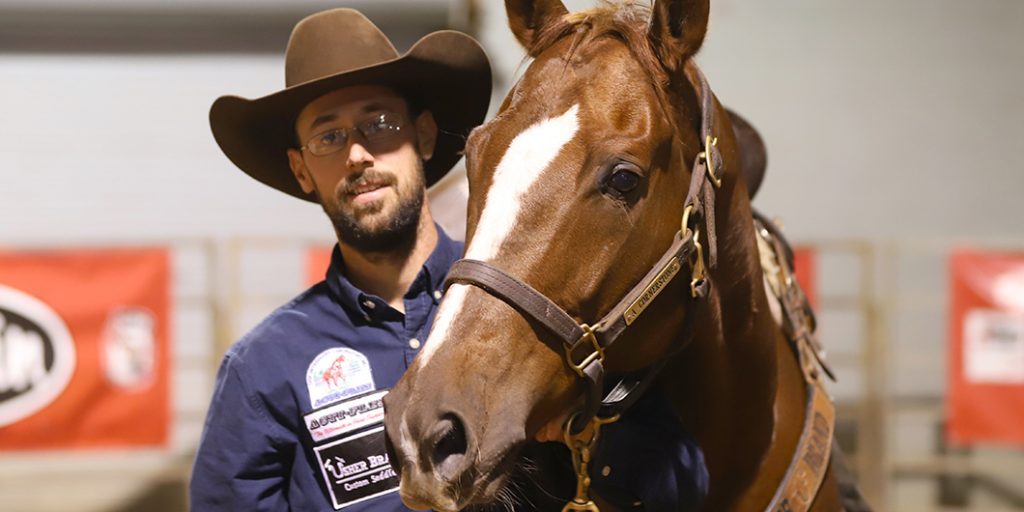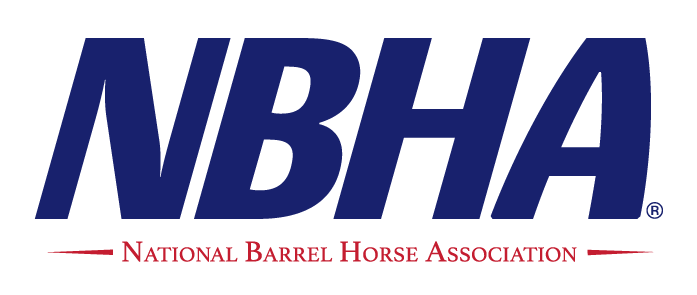
Brandon Cullins’ Six Keys to Happy Barrel Horses
Posted on April 8, 2020
Six keys to happy barrel horses with NBHA 2019 1D World Champion Brandon Cullins.
- Make sure they’re happy. “They need to be feeling good and fed good. I like a horse looking really good—the better they look, the better they feel. I like to turn them out a lot. Mental health turns into physical health. If they’re in a stall all the time and grumpy and tight and uncomfortable, that gets them body sore which creates other issues. I like them out in the sun in the pasture, just being a horse. That helps them a ton mentally and physically.”
- Relaxed pasture riding. “I do a lot of long jogging out in the field. I trot horses a lot. I want them to be collected and know that when I take the reins they need to draw up underneath themselves, but I give them a lot of free time too. We long trot around the crop fields a lot, not constantly gathering them up and pounding on them and tuning every day. That takes a lot of pressure off them mentally and physically.”
- Use therapies when needed. “If we have one that gets sore feet or lower leg problems, we’ll put them on the Theraplate. We have one at home; I don’t know how much it helps, but it makes me feel like I’m doing something for them! They seem to like it a lot, so we’ll do that. I also like the cold saltwater spa a lot. We use that as much as we can at shows. I’ve also got ice boots, which is like a smaller version of the cold spa, for sore feet, abscesses, tightens up the legs, knees, everything.”
- Go to the vet frequently. “Vet work is very important. The colts, when we’re getting ready to futurity, I’m not ever scared to get one injected or worked on. To me, they’re trying for you. You’re working them a lot, they’re going to get sore—it’s pretty normal. I want them always feeling good. When we get vet work done on them more as a younger horse, they need it less as an older horse. Sore hocks turn into a sore back, and everything snowballs. If you don’t take care of it right away, you create a long term, lifetime issue. If you keep them taken care of regularly, you avoid a lot of those problems and extend their career. The more work we did as a colt, they’re still out there running and not getting as much vet work as they used to. When they’re older and know how to handle their body and are stronger physically, they’ll need it less. If you don’t do it early on, they start guarding themselves. If they get sore in the hocks they’ll start getting their hip up in the air and their back is going to get sore and you’re going to crank on them and tune on them even more trying to get that right feel—it’s wrong to the horse if he’s sore and you’re doing something that’s making him more sore. I’m a really big believer in vet work and taking care of them.”
- Be proactive against ulcers. “We use buckets and buckets of Gastroade. If I even think a horse is looking at his feed funny or might be funny in his gut, I give it to them. Keep the stress down on these colts and keep them eating and feeling good. When I go driving down the road and forget to eat, I get a little grumpy, so I don’t hold that against them. We use Equinety a lot; it’s amino acids and we use it for overall health. I think it makes the body use everything that’s already there, it doesn’t really put anything extra, so I like that a lot.”
- Pay attention to your horse. “They’re going to tell you if they’re not feeling right. Good horses don’t stop being good horses for no reason. Really pay attention to them. They’ll tell you, and then address it. Do not try to ride through it. Figure it out first, and then move on. It’s really important to take care of the horses. They’ve got to give you everything, and in this day and age as good as the horses are, you need them to feel perfect.”
Find more tips from Brandon Barrel Horse News here.

